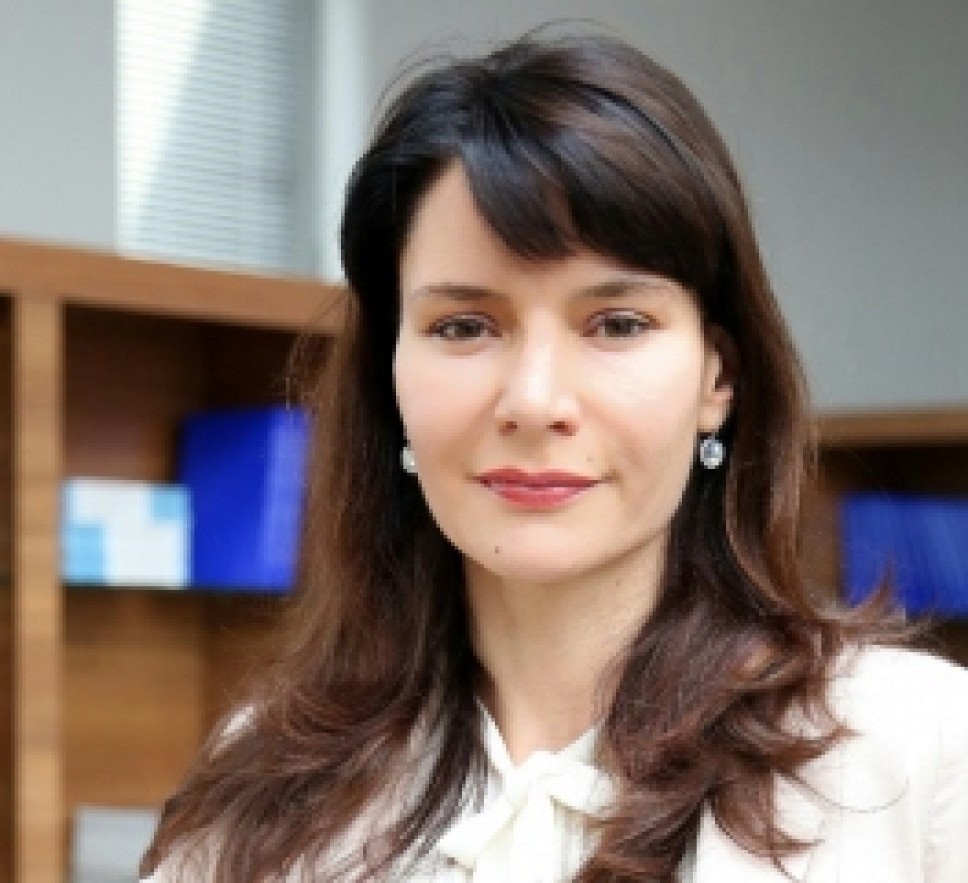Prorektorica Kostić: Pojačana međunarodna komunikacija univerziteta ključna za studente u vrijeme pandemije

Sa prorektoricom Univerziteta Crne Gore prof. dr Natašom Kostić razgovarali smo o značaju međunarodne saradnje Univerziteta Crne Gore sa drugim visokoškolskim institucijama, u vrijeme izbijanja pandemije, pogotovo u pogledu studenata učesnika programa mobilnosti, koji su se zatekli u evropskim gradovima, kao i stranim studentima u Crnoj Gori.
Takođe, povod razgovora je bio i uticaj cjelokupne situacije i primjene globalnih mjera za sprečavanje širenja virusa COVID 19 na dalju međunarodnu saradnju sa univerzitetima sa evropskih adresa, kao i realizaciju započetih projektnih aktivnosti.
UCG: Kakva je bila komunikacija sa univerzitetima Evrope, odmah po izbijanju pandemije?
PROF. DR KOSTIĆ: Mnogi studenti Univerziteta Crne Gore su se u trenutku izbijanja krize zatekli na razmjeni u zemljama Evropske unije. U toj situaciji ključnu ulogu su imale, i svakodnevno imaju, kancelarije za međunarodnu saradnju partnerskih univerziteta i Univerziteta Crne Gore. Kako bi studenti dobili pravovremene i tačne informacije svakodnevna komunikacija sa partnerskim univerzitetima je bila od neprocjenjivog značaja. Službenici kancelarija za međunarodnu saradnju su u kontaktu sa svim studentima, i odlaznim i dolaznim, prate situaciju, informišu i savjetuju.
UCG: Kako će završiti studije oni studenti koji su započeli semestar na stranom univerzitetu u vrijeme izbijanja pandemije?
PROF. DR KOSTIĆ: Univerzitet Crne Gore je, kao i svi naši partnerski univerziteti, tokom pandemije korona virusa obezbijedio nastavu na daljinu i za svoje i za Erasmus studente koji su se zatekli na razmjeni u trenutku izbijanja krize. Prema informacijama kojima raspolažemo jedan broj studenata Univerziteta Crne Gore se vratio u zemlju i prati nastavu na daljinu na stranim univerzitetima na kojima su započeli mobilnost, dok ima i onih koji to čine u inostranstvu budući da su odlučili da tamo borave do kraja semestra.
UCG: Kakva je bila politika univerziteta po pitanju odlaska ili ostajanja studenata u zemlji programa mobilnosti?
PROF. DR KOSTIĆ: Univerziteti su stavili sve svoje kapacitete na raspolaganje kako bi pomogli studentima i dopustili im da sami odluče da li ostaju u inostranstvu ili se vraćaju kući. Za one koji su odlučili da se vrate svojim kućama Univerzitet je pružio podršku u stalnoj komunikaciji sa nacionalnim agencijama EU zemalja, Nacionalnom Erasmus+ kancelarijom, a po potrebi i sa našim ambasadama u stranim državama. Kancelarija za međunarodnu saradnju, kao i prodekani za međunarodnu saradnju univerzitetskih jedinica, u stalnoj su komunikaciji sa onim stranim studenatima koji su odlučili da ostanu u Crnoj Gori u periodu krize i pružaju im u kontinuitetu sve potrebne informacije kako bi ovaj period iskoristili na najbolji mogući način, uz poštovanje svih mjera koje nadležni organi uvode u borbi na suzbijanju pandemije.
UCG: Šta biste savjetovali studentima koji su u ovom trenutku željeli da se prijave za neki od programa?
PROF. DR KOSTIĆ: Bez obzira na to što se situacija mijenja iz dana u dan, te nije moguće predvidjeti kada ćemo se vratiti normalnom funkcionisanju i kada će biti omogućeno putovanje u inostranstvo, studentima savjetujem da se na web stranici Kancelarije za međunarodnu saradnju informišu o dostupnim stipendijama i o tome na kojim stranim univerzitetima mogu ostvariti mobilnost u okviru Erasmus+ programa. Imajući u vidu da su konkursi za razmjenu objavljivani još od početka februara, jedan broj studenata se prijavio na tekuće konkurse i te su nominacije proslijeđene partnerskim univerzitetima na finalno odlučivanje o dodjeli stipendija. Kada će ove mobilnosti biti realizovane zavisi od objektivnih okolnosti i daljeg razvoja situacije.
Informacije o konkursima koji su bili dostupni u ovom semestru mogu se naći na linku: https://www.ucg.ac.me/objava/blog/19379/objava/61244-erasmus-konkursi-objavljeni-u-ljetnjem-semestru-2019-2020, gdje se studenti mogu upoznati sa mogućnostima koje nude programi međunarodne mobilnosti. Iako je rok za prijavu u okviru ovih konkursa sada već istekao, oni sadrže informacije o načinu prijave, potrebnoj dokumentaciji i ostale relevantne informacije koje studentima mogu biti korisne za prijavu na naredne konkurse čija će realizacija mobilnosti početi u ljetnjem semestru akademske 2020/2021. godine. Ukoliko su im neophodne i dodatne informacije, Kancelariji za međunarodnu saradnju se mogu se obratiti i putem imejl adrese mobilityuom@ucg.ac.me.
UCG: Kako će aktuelna situacija uticati na realizaciju programa razmjene i uopšte međunarodne saradnje sa univerzitetima sa evropskih adresa?
PROF. DR KOSTIĆ: Novonastala situacija izazvana pandemijom korona virusa utiče na sve aspekte funkcionisanja Univerziteta pa i na oblast međunarodne saradnje. Taj uticaj ogleda se u izmjeni modaliteta realizacije aktivnosti u ovoj oblasti, mada ne nužno i na obim tih aktivnosti. Imajući na umu sve aspekte međunarodne saradnje kao što su međunarodne mobilnosti studenata i osoblja, realizacije međunarodnih projekata, članstva u međunarodnim asocijacijama i drugi oblici saradnje sa stranim univerzitetima, trenutna situacija zbog uvedenih mjera ograničenja putovanja najveći uticaj ima na mobilnost studenata i nastavnika, organizaciju konferencija, seminara i sličnih događaja, te organizaciju studijskih posjeta planiranih međunarodnim projektima.
UCG: U kojoj mjeri se mogu sada realizovati međunarodni projekti?
PROF. DR KOSTIĆ: Kada su u pitanju međunarodni projekti, projektne aktivnosti se realizuju u najvećoj mogućoj mjeri u datim okolnostima. Komunikacija se obavlja onlajn, putem imejla, skajpa i Zoom aplikacije. U ovoj sferi mogu se očekivati izvjesna kašnjenja u realizaciji studijskih posjeta i onih aktivnosti koje su u vezi sa tim studijskim posjetama. Sve ostale aktivnosti realizuju se planiranom dinamikom, a u svakodnevnoj komunikaciji sa partnerima iz inostranstava razmjenjujemo informacije i iskustva rada u novonastaloj situaciji.
U periodu od početka krize radili smo i na pripremi projektnih predloga u okviru međunarodnih konkursa za prijavu projekata. Podnijet je zavidan broj prijava na konkurs u okviru programa Kreativna Evropa. Prijave su podnijete i na konkurs Centralno-evropske inicijative, tematski posvećenog upravo učenju na daljinu, koje je u datoj situaciji postalo izuzetno aktuelno kao jedini način organizacije nastave za studente širom svijeta.
Medijske objave:
https://www.aktuelno.me/crna-gora/studentima-omogucena-nastava-na-daljinu/
https://www.onogost.me/drustvo/studentima-omogucena-nastava-na-daljinu
http://www.rtcg.me/vijesti/drustvo/276323/studentima-omogucena-nastava-na-daljinu.html
https://fosmedia.me/mobile/index.php/infos/drustvo/studentima-omogucena-nastava-na-daljinu


